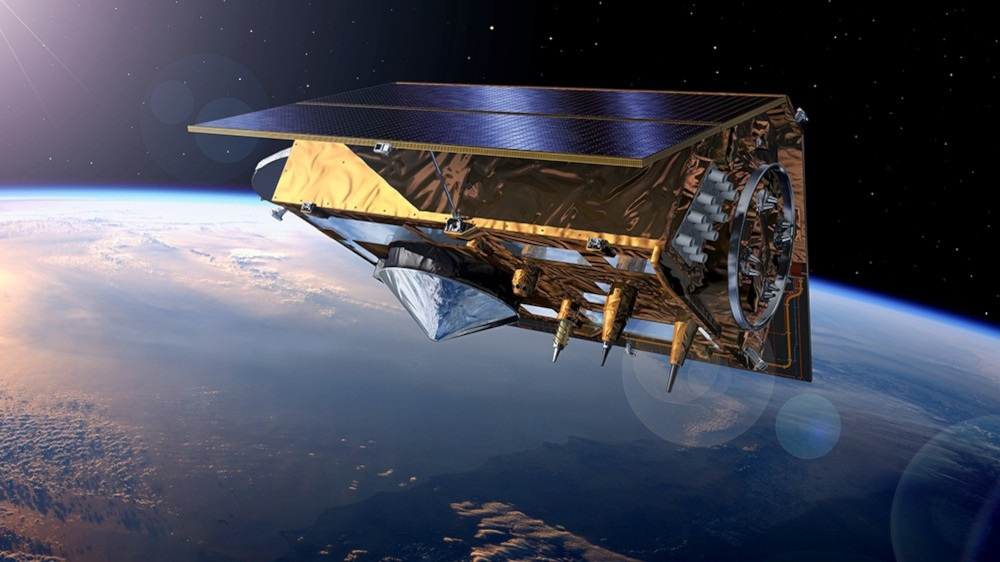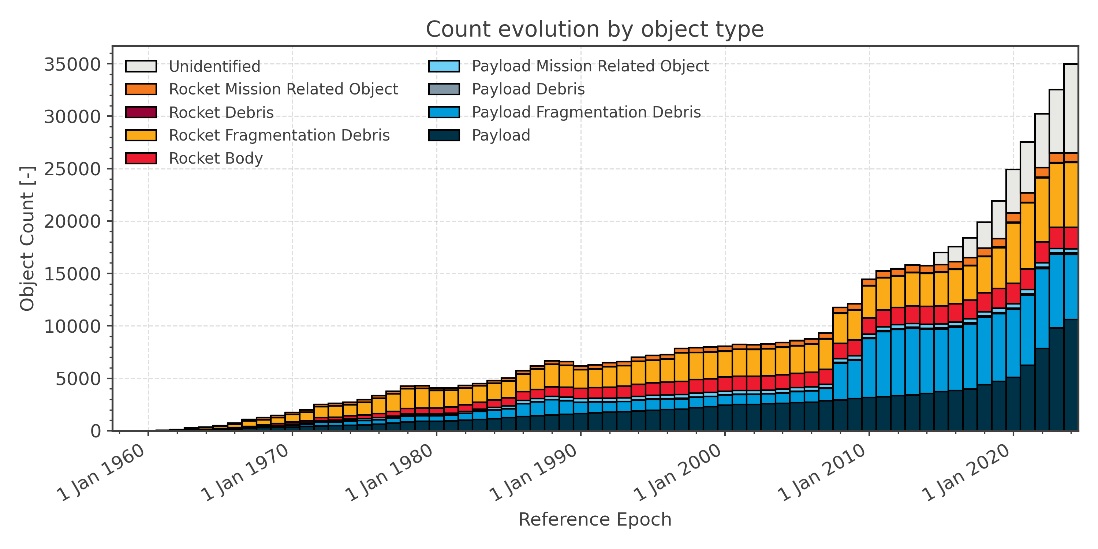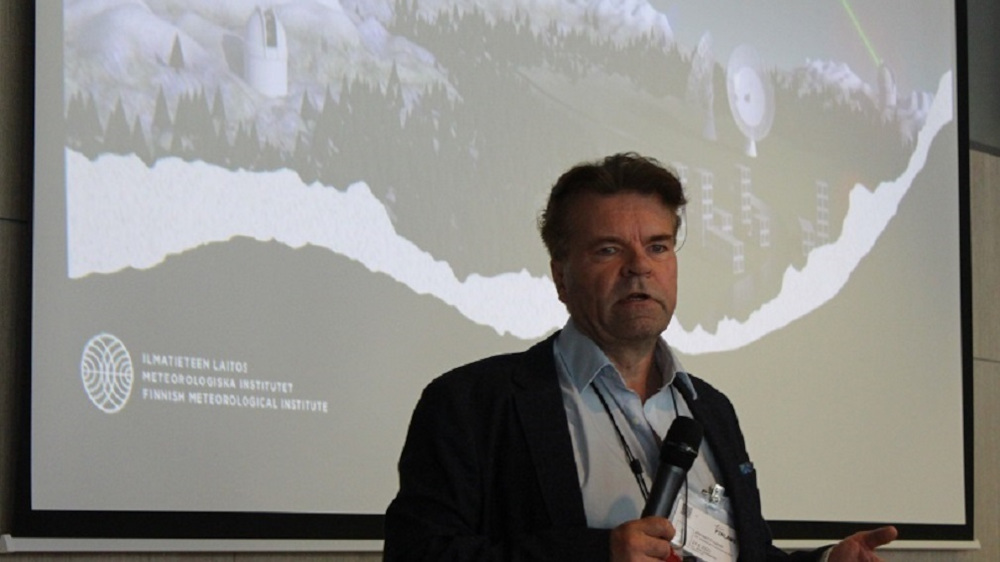
“As a result of the National Space Situational Awareness Centre, Finland would have the capability to assess the harm and danger caused by space”
Space has become part of the everyday lives of all citizens. The generalisation of satellite activities will bring many benefits, but it has also led to congestion in outer space – this exposes space-dependent societies to new kinds of risks. “The National Space Situational Awareness Centre would be a good way to anticipate space-related risks,” says Professor Ari-Matti Harri from the Finnish Meteorological Institute.
The Earth's orbits are congested: According to the statistics of the European Space Agency ESA, the total mass of space objects placed in orbit by people is approximately 11,000 tonnes: at the moment, there are more than 10,000 satellites in outer space, but the amount of space debris is also growing. The increase in the number of space objects significantly increases the risk of collisions between satellites, which is why monitoring satellite traffic is seen as increasingly important for the functioning of society.

Over the past few decades, the growth in the number of space objects has been explosive. The European Space Agency ESA estimates that the total mass of equipment and space debris placed in orbit is approximately 11,000 tonnes. Source: ESA.
Space dependency requires close monitoring of outer space
An increasing number of sectors in society rely on telecommunications, weather forecasts and spatial data. “Space dependency of societies is growing,” says Ari-Matti Harri, Head of the Finnish Meteorological Institute's Space Research and Observation Technologies Unit. Also Finnish society is largely dependent on space activities, and disruption of satellite activities would have significant impacts on Finnish society.
Ari-Matti Harri emphasises that, for this reason, the rail data of satellites at risk of collision should be closely monitored. The activity of space weather may also affect the quality of space-dependent services: “A solar storm may reduce positioning accuracy by region. We need to monitor both space weather and satellite collision probabilities around the clock. From the point of view of the functioning of society, the monitoring of outer space, or space situational awareness, is absolutely essential,” Harri commented.
FSSAC – 24-hour information and official service
Finland is currently discussing the establishment of a national Finnish Space Situational Awareness Centre (FSSAC). “The purpose of the FSSAC would be to provide information and official services around the clock. As a result of the FSSAC, Finland would have the capability to understand and assess the harm and danger arising from space and to share space situational awareness information with relevant actors,” Harri commented.
In early this year, a steering group appointed by the Ministry of Transport and Communications published a national study to assess the need for a Space Situational Awareness Centre as follows: “The establishment of the Space Situational Awareness Centre would promote (…) Finland's comprehensive security objectives, such as national crisis resilience, maintenance of critical infrastructure, security of supply and cyber security.”
“Space situational awareness is realised as a result of global cooperation”
Harri emphasises that the task of the National Space Situational Awareness Centre is to produce space situational awareness as international partners, such as the European EU SST and the US USSPACECOM. “No European country alone can produce a comprehensive situational awareness of the state of outer space – the space situational awareness is realised as a result of global cooperation. States, on the other hand, are responsible for ensuring the provision of space situational awareness data to national actors.”
Last autumn, under the leadership of the Finnish Meteorological Institute – partnered by the National Land Survey of Finland – Finland joined the European Union Space Surveillance Organisation (EU SST), which combines the international observation capabilities of 15 Member States and maintains real-time situational awareness of the situation in outer space. Finland contributes to the EU SST network by participating in forming situational awareness and distributing observation data received by the Metsähovi Geodetic Research Station to other EU SST Member States.
Finland has already established space situational awareness expertise
Ari-Matti Harri points out that the National Space Situational Awareness Centre would be a continuation of the capabilities of space situational awareness services already in Finland. “The Finnish Meteorological Institute directs one of four space weather centres designated by the International Civil Aviation Organization ICAO: Pecasus distributes global space weather services to international air transport, for example. Finnish Meteorological Institute's own space weather service supplies space weather data also to different levels of Finland. The National Space Situational Awareness Centre would expand Finland's space-oriented updating activities. In addition to space weather, FSSAC would also take into account the collision and fragmentation probabilities of satellites and space debris particles and assess the risk posed by comets and asteroids.”

Ari-Matti Harri spoke about the Finnish Space Situational Awareness Centre at the summer Space Business Forum.
Ari-Matti Harri - long-term space professional
Promoting space situational awareness has been an important part of Ari-Matti Harri's 35-year career at the Finnish Meteorological Institute. Today, Harri coordinates, among other things, Finland's role in the EU Space Surveillance Organisation (EU SST). In addition to promoting space situational awareness, there have also been many other highlights in the long career: “One of the highlights of my career so far is the manufacture of research equipment for planetary probes, such as following their landing in Mars or in Titan, the moon of Saturn.” Harri's vision for the Finnish Meteorological Institute's Space Research Unit is that the unit would develop more capabilities in space situational awareness. Harri also visions closer cooperation in the space sector: “I would like to contribute to closer cooperation between representatives of educational and research institutions, the space industry and the authorities in Finland.”
Read more:




